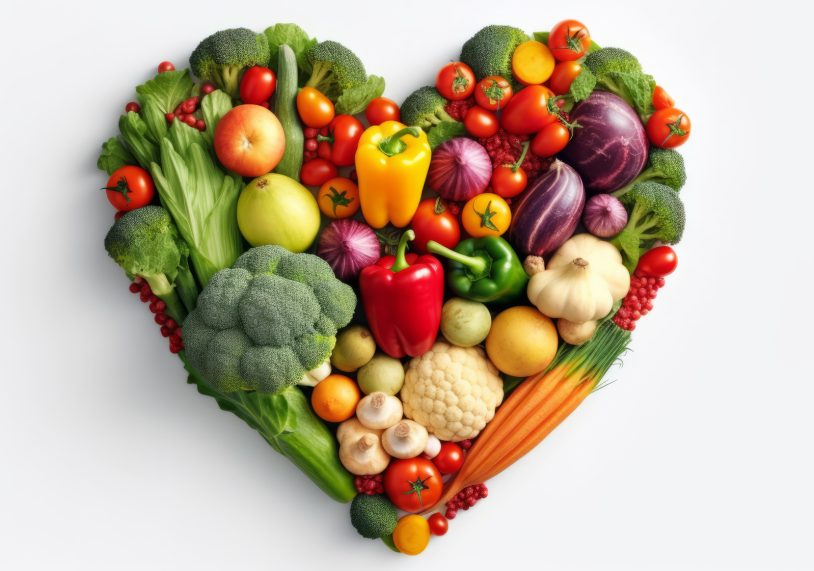This post was most recently updated on October 19th, 2023

Addiction healing is a multifaceted process that demands physical, emotional, and psychological support. Within this framework, nutrition plays a crucial yet often underestimated role.
A balanced diet, rich in specific vitamins and minerals, can greatly assist the body’s natural healing mechanisms. This isn’t merely an add-on to recovery; it’s a fundamental component.
In this article, we delve into the essential vitamins and minerals that can bolster your journey toward successful addiction recovery. Our aim is to offer a well-rounded guide to nutritional choices that can make a difference.
Why Nutrition Matters In Addiction Recovery
Addiction takes a heavy toll on the body. It can affect various systems, including the nervous, cardiovascular, and digestive systems. Substance abuse often leads to nutritional deficiencies, weakened immunity, and a higher risk of disease. The impact on the body can be far-reaching, affecting everything from metabolism to mental health.
Nutrition steps in as a cornerstone for recovery. A balanced diet, rich in vitamins and minerals, can support the healing process in multiple ways. It helps repair damaged tissues, boosts the immune system, and promotes better mental health.
Proper nutrition also aids in stabilizing mood swings and improving cognitive function. This enhances the effectiveness of other treatments and therapies. For more in-depth guidance on the role of nutrition in recovery, you may want to visit westcoastrecoverycenters.com.
Vitamins Essential For Addiction Healing
In addition to the foundational role that nutrition plays in recovery, specific vitamins offer targeted benefits. Let’s examine a few key vitamins that can significantly influence your path to healing.
Vitamin A
Vitamin A is a crucial nutrient that maintains various physiological functions. It is particularly vital for a robust immune system and liver function. These organs often bear the brunt of substance abuse, making Vitamin A indispensable in the recuperation process.
Vitamin C
Known as a potent antioxidant, Vitamin C serves multiple functions in healing. It aids in mending damaged tissues and cells, making it instrumental in physical recovery. Moreover, this vitamin plays a role in mitigating stress, thereby enhancing emotional well-being.
Vitamin B-Complex
B vitamins are another set of nutrients that are indispensable for recovery. They facilitate cellular energy production and are crucial for neurological well-being. Among these, Vitamin B6 aids in neurotransmitter production, B9 supports brain health, and B12 is vital for nerve function.
Incorporating these vitamins into your nutritional regimen can be a strategic move. While not a replacement for other forms of treatment, they complement therapies and medications, offering a more holistic approach to addiction healing.
Important Minerals For Recovery
In the landscape of nutritional support for addiction recovery, minerals hold significant value. Much like vitamins, they serve targeted functions that enhance well-being and fortify the body during the healing journey. Below, we explore a few essential minerals that deserve your attention.
Magnesium
Magnesium plays a pivotal role in various biochemical reactions within the body. It is particularly effective in mitigating stress, as it calms the nervous system. Moreover, it facilitates muscle relaxation, aiding in physical comfort and ease.
Zinc
Zinc is another essential element, critical for cellular repair and fortifying the immune system. Its role is especially relevant for maintaining liver health, an organ frequently strained by substance abuse.
Iron
Critical for hemoglobin formation, iron ensures optimal blood health. This mineral is essential for the efficient transportation of oxygen throughout the body, fostering general well-being and energy levels.
These minerals are not merely supplementary but integral to a balanced recovery strategy. While they should be consumed in accordance with healthcare advice, their inclusion can substantially strengthen the overall effectiveness of your recovery plan.

How To Incorporate These Nutrients
Knowing the importance of these vitamins and minerals is one thing; incorporating them into your daily routine is another. Let’s explore actionable ways to get these essential nutrients.
Dietary Sources
A balanced diet is the cornerstone for nutrient intake. For Vitamin A, consider foods like carrots, sweet potatoes, and spinach. Citrus fruits and strawberries are excellent sources of Vitamin C. Whole grains and poultry can provide you with the much-needed B vitamins.
Minerals are equally accessible through food. Leafy greens and nuts are rich in magnesium. For zinc, lean meats and dairy products are good options. Iron can be found in legumes and red meat.
Supplement Options
Though a balanced diet should be your go-to, supplements offer a convenient alternative. They can be particularly helpful when specific nutritional needs are hard to meet through food alone. However, supplements come with their own sets of considerations.
Before turning to supplements, consultation with a healthcare provider is crucial. They can recommend the right types and dosages, ensuring you don’t overconsume. This step is vital for a well-rounded and safe recovery plan.
A strategic approach to nutrition will serve you well in your healing journey. Whether through a thoughtful diet or advised supplementation, make these vitamins and minerals part of your recovery toolkit.
Risks And Precautions
While vitamins and minerals can significantly aid in recovery, it’s essential to approach their intake with caution. Excessive consumption of these nutrients can lead to unintended consequences such as toxicity and imbalances in the body. For instance, too much Vitamin A can harm the liver, while excessive iron intake can result in digestive issues.
Given these potential risks, it is imperative to consult with healthcare providers for personalized nutritional plans. A healthcare provider can recommend appropriate dosages and combinations of vitamins and minerals tailored to your unique needs. This ensures not only the efficacy of your recovery efforts but also safeguards against any adverse effects.
Conclusion
We’ve navigated through the pivotal role that nutrition plays in addiction recovery, highlighting specific vitamins and minerals that can fortify your path to healing. These nutrients serve as essential building blocks, aiding in everything from tissue repair to mental well-being.
However, the approach to incorporating these elements into your lifestyle must be cautious and well-advised.
In the grand scheme of addiction recovery, a balanced intake of these nutrients can be a strong ally. By consulting healthcare providers for personalized plans, you can maximize the benefits while minimizing risks. Through a thoughtful integration of these vitamins and minerals, you’re better equipped to navigate the complexities of healing from addiction.


